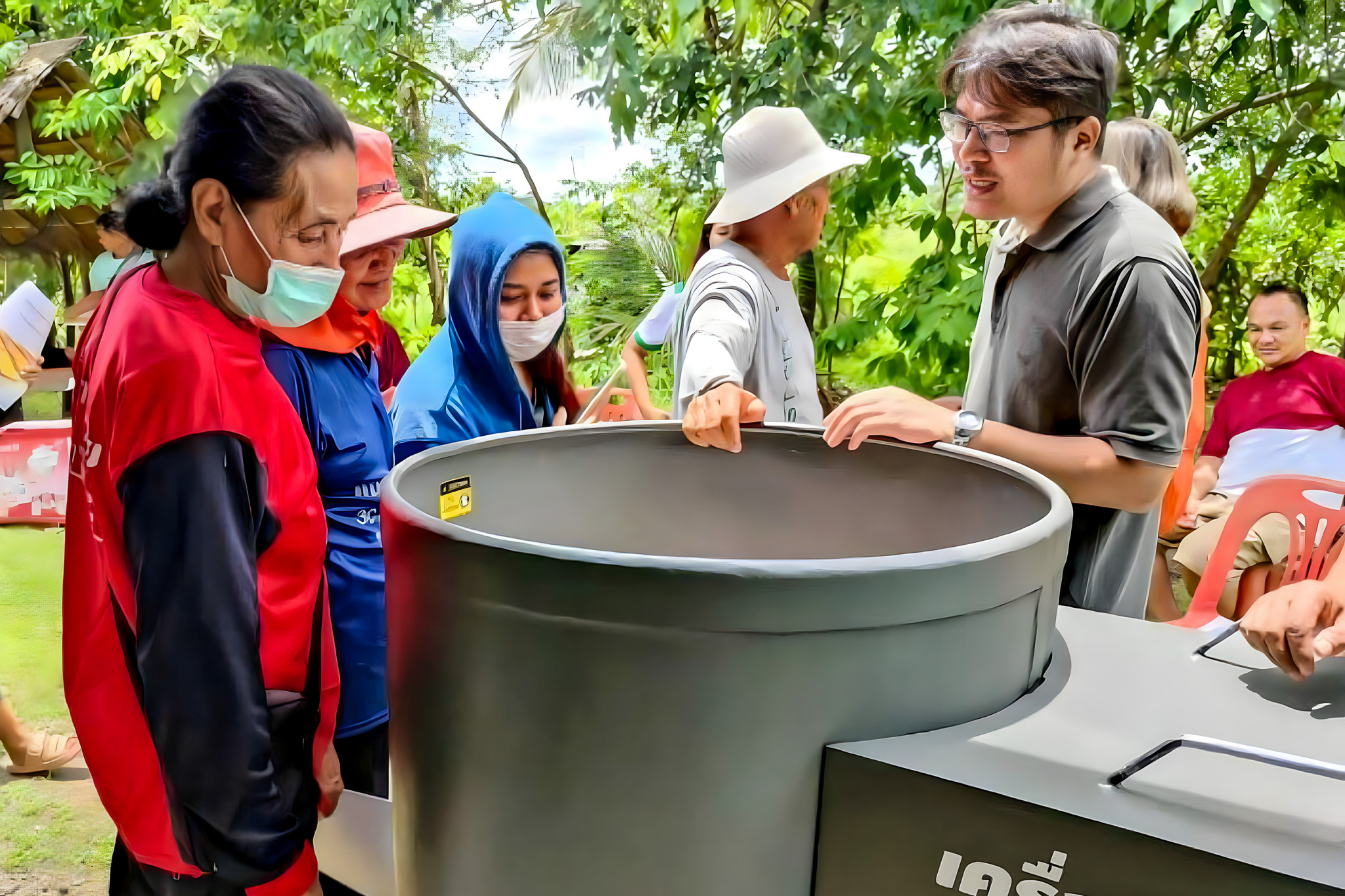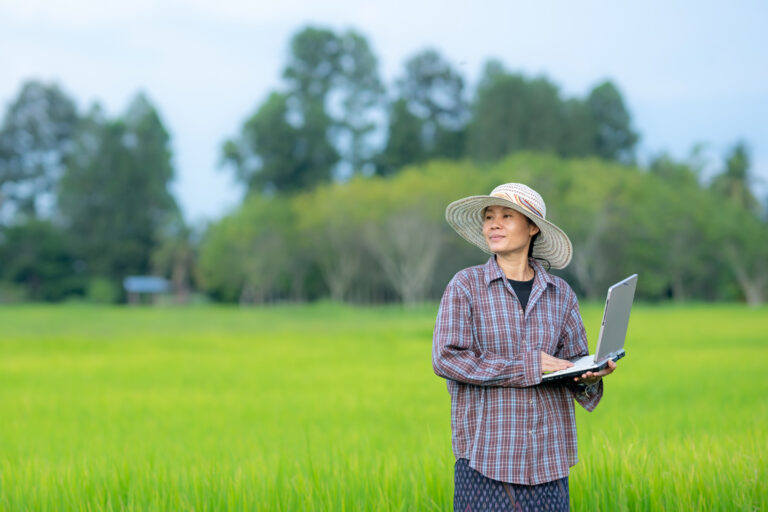
First RAIN DROP excitement: A #thaiRAIN success story
Isn’t RAIN DROP refreshing?
Isn’t it refreshing to feel raindrops falling from the sky? Just like that, RAIN’s grant program, called RAIN DROP, aims to revitalize Thai agriculture by enhancing the capacity of grantees — partners who will work to scale technologies among farmers.
RAIN has prioritized grant programs, given that the project works with small companies and smallholder farmers who may require financial and technical assistance to drive changes in the agricultural sector. RAIN has developed a detailed RAIN DROP grant program and pushed forward with execution in line with Winrock’s guidelines. The process is meticulous, from setting criteria and screening potential grantees to evaluating and seeking approval.
An important part of the RAIN DROP program is for RAIN to ensure that grantees meet criteria demonstrating their ability to deliver within the scope of work. These criteria include organizational management, experience, financial controls, and human resource technical abilities.
In June, RAIN announced the first RAIN DROP grant worth USD $2,406 for PWS Evolution System Co., a rice dealer aiming to encourage Thai rice farmers to use soil test kits and customized fertilizer for sustainable practices. This marks a success in RAIN’s efforts to build the capacity of small companies in the agri-food sector.
Mainstreaming customized fertilizer
The Thai government has encouraged smallholder farmers to use soil test kits and customized fertilizer, which help them focus on the nutrients their plants need and lack in the soil, saving costs.
Chemical fertilizer accounts for a substantial portion of farmers’ expenses, and Thailand relies on imports, which exposes farmers to global fertilizer prices. Customized fertilizer also reduces soil and water contamination and cuts down nitrous oxide, a greenhouse gas derived from nitrogen that, according to scientists, lasts longer in the atmosphere than others.
However, Thai farmers have been slow to adopt these practices due to low confidence and a lack of convenient access to the necessary equipment and materials.
It took eight months for RAIN’s technical and grant team to help PWS develop an eligible implementation plan and get approval for the grant. Under the grant’s terms, the funds must be used to provide soil test kits and two mobile customized fertilizer blenders to 250 rice farmers this year as a pilot project. The farmers are within the company’s network across the provinces of Nakhon Ratchasima, Chaiyaphum, Khon Kaen, and Ubon Ratchathani.
The blender has been nicknamed the “Miximizer,” a combination of the words “mixing” and the benefits of “optimizing” fertilizer use, “minimizing GHG,” “minimizing” production costs, and “maximizing” yields and quality. Under cost-sharing terms, PWS will contribute to logistics, labor, and core fertilizer. Livelihoods Funds, an investment fund focused on sustainability, will collaborate on the grant by training PWS staff and farmers on using soil test kits and fertilizer blenders to build a formula adapted to their specific areas.
Nikhom Ruamsit, RAIN’s business development specialist, stated that RAIN recognized significant synergies in supporting PWS’s initiative to train farmers on this approach and provide them with soil test kits and the Miximizer.
PWS buys rice from farmers in Thailand’s northeastern provinces to process and supply large consumer food companies. This allows PWS to promote the new practice and match its rice supply with companies seeking to transition their supply chains to sustainable practices.
“As a newly founded company, some aspects of PWS’s organizational management initially did not meet RAIN’s grant criteria. RAIN worked with the company to address these shortcomings, such as its accounting system and human resources for farmer training,” Nikhom said.
“As a newly founded company, some aspects of PWS’s organizational management originally did not satisfy RAIN’s grant criteria.”
– Nikhom Ruamsitthai, RAIN’s Business Development Specialist
Pilot project to boost farmer confidence
Noppawan Paengwiset, PWS’s CEO and founder, said the grant enhances the company’s capacity to pilot the blender. The company will train lead farmers to record data on cost savings and increased crop yields to evaluate results. It expects that the pilot project’s outcomes will boost farmer confidence, which is essential for the scale-up phase.
“Our approach focuses on strengthening farmer networks so that farmers will buy the devices and manage them independently in the future,” Noppawan said. She added that PWS would supply rice products to major consumer food producers who are keen on sourcing from suppliers with proven sustainable practices and who encourage farmers to meet international sustainability standards, particularly the Sustainable Rice Platform.
“Farmers’ inappropriate use of fertilizer on their soil has been an issue for a long time. We are talking about a behavioral change among farmers; most are in their 50s and confident in their usual practices,” she added.
In the second phase, RAIN will expand its collaboration with PWS to include 2,000 farmers from two additional provinces, Roi Et and Yasotorn, to promote the use of blenders by 2028. PWS will also test a dry direct sowing machine to reduce labor costs and energy consumption when transplanting rice seedlings.
“We are talking about a behavioral change for farmers; most are in their fifties and are confident in their usual practices.”
– Noppawan Paengwiset, PWS’s CEO and founder
Related Projects

